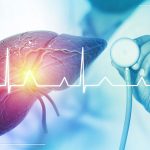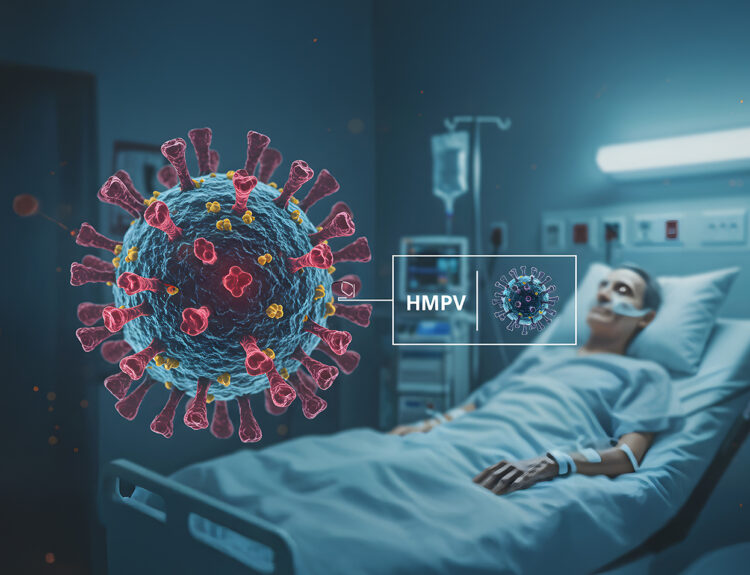Monkeypox is a viral ailment that spreads predominantly through skin-to-skin contact.
Infections have progressively increased since the first documented case in the United States in May, with the largest numbers in New York, California, and Illinois. In 2003, the United States reported the first MPX epidemic outside of Africa. More recently, in 2018 and 2019, MPX was discovered in four travelers from Singapore, Israel, the UK, and Nigeria who had previously traveled. For the first time outside of an epidemic context, travelers were linked to MPXV transmission. Vaccination can aid in the prevention of both the original infection and the emergence of symptoms. This viral illness called human monkeypox (MPX) is brought on by the monkeypox virus (MPXV). Due to a number of factors, such as increased exposure (deforestation, conflict, and displacement) as well as improved surveillance and laboratory capacity in the African region, MPX cases have been reported more frequently in several African countries since it was first recognized as a human disease in 1970.
As the United States verifies 1,814 monkeypox cases from 45 states, some public health experts are concerned that the virus is getting rooted in the country and that the window for controlling the outbreak and eradicating the virus is rapidly closing. Several media outlets reported over the weekend that access to treatments and vaccines remains far from streamlined, with doctors required to make formal requests from the national stockpile each time they want to treat a patient with Tpoxx, an antiviral used to treat smallpox that can also be used to treat monkeypox. Since January 1st, 3413 laboratory confirmed cases and one death have been reported to WHO from 50 countries/territories in five WHO Regions as of June 22nd, 2022. Since the last Disease Outbreak News on June 17, 1310 new cases have been recorded, with eight additional nations reporting cases.
The WHO European Region reported the majority of laboratory verified cases. Other regions reporting instances are the African Region, the Americas Region, the Eastern Mediterranean Region, and the Western Pacific Region. In Nigeria, one death was reported in the second quarter of 2022. The case count is likely to fluctuate as new information becomes available on a daily basis and data is validated in accordance with International Health Regulations (2005). WHO is constantly monitoring the situation and continues to facilitate international coordination and information sharing with the Member States and partners. Member States have activated clinical and public health incident response to coordinate extensive case discovery, contact tracing, laboratory investigation, isolation, clinical care, and infection prevention and control measures. Where accessible, genomic sequencing of the monkeypox virus’s viral deoxyribonucleic acid (DNA) is being carried out; preliminary findings from polymerase chain reaction (PCR) studies show that the monkeypox virus genes discovered belong to the West African clade.
Earlier this month, the Biden administration stated that public-private partnerships with laboratories will rapidly enhance testing capacity across the country. Late this week, the federal government also announced another large purchase of Jynneos, the monkeypox vaccine. The Department of Health and Human Services (HHS) announced in early 2023 that an extra 2.5 million doses will be added to the Strategic National Stockpile (SNS).
The acquisition increases the federal government’s accessible stock of monkeypox vaccines to roughly 7 million doses by mid-2023. HHS has made over 300,000 medicines accessible to states and territories since late May.
The European Union has obtained 54,000 more doses of Jynneos. According to Reuters, the union has so far provided around 25,000 pills to six member nations. The monkeypox outbreak is still centered in Europe. There have been 13,094 confirmed instances of the illness worldwide, with Spain (2,835), Germany (1,924), and the United Kingdom (1,856) reporting the most cases.
WHO has strongly urged the Member States to consider the context of the current multi-country monkeypox outbreak and to convene their national immunization technical advisory groups (NITAGs) to review the evidence and develop policy recommendations for the use of vaccines as appropriate for the national context. All choices about vaccination with smallpox or monkeypox vaccines (pre-emptive or post-exposure) should be made on a case-by-case basis through shared clinical decision-making between a health care professional and a potential vaccine. Member States that use monkeypox vaccines are encouraged to do so within the context of collaborative clinical studies employing standardized design methods and data collection tools for clinical and outcome data in order to rapidly increase evidence generation, particularly on vaccine effectiveness and safety.
Monkeypox causes a distinctive rash, as well as systemic symptoms like fevers, chills, and myalgias (aches and pains). The skin eruption generally starts one to four days after the fever starts and lasts two to three weeks. There have also been reports of rash without fever. Unlike COVID-19, which has claimed many lives, deaths from monkeypox are extremely rare; according to the CDC, people who are pregnant or nursing have compromised immune systems, have a history of eczema, or are under the age of eight are more vulnerable to this serious disease.
People who have acquired the virus recall waiting days for test results and hours in the emergency department before obtaining a diagnosis according to New York Times. Furthermore, despite having the highest instances of any US city, New York City is still running low on immunizations. The FDA is advising healthcare practitioners to screen for monkeypox by swabbing lesions from individuals with probable cases. The FDA is not aware of any clinical evidence supporting the use of alternative sample types for monkeypox virus testing, such as blood or saliva. Testing samples that are not collected from a lesion may result in erroneous test results according to the FDA.
Given that this is the first-time cases and clusters have been recorded concurrently in five WHO Regions, the global risk is rated as moderate. At the regional level, the European Region is assessed to be at high risk due to its report of a geographically large epidemic encompassing multiple newly affected nations, as well as a relatively unusual clinical presentation of patients. Other WHO Regions estimate the risk to be moderate, taking into account epidemiological trends, the possibility of case importation, and the capacity to detect cases and respond to the epidemic. This is the first time that cases have been verified in newly affected nations, mostly but not solely among men who have had recent sexual encounters with new or numerous women.
The CDC is now keeping a close eye on the issue and providing frequent updates on their website Trusted Source. Despite the fact that the number has been rising. The good news is that monkeypox is self-limiting and not as infectious as other viruses. While no one knows when the present outbreak will terminate, recorded monkeypox infections in non-endemic nations should be suppressed reasonably soon. Tecorivimat is an antiviral medicine that has just received European Medicines Agency clearance for orthopoxvirus-associated illnesses, including monkeypox, based on animal models and evidence regarding safety, pharmacokinetics, and pharmacodynamics in people. As a result, it is predicted that solid and interpretable information on its safety and efficacy would be available soon.
All nations should be on the lookout for signs of patients with a rash that proceeds in phases – macules, papules, vesicles, pustules, and scabs, at the same stage of development throughout all afflicted parts of the body – and is accompanied by fever, swollen lymph nodes, back pain, and muscular pains.
WHO asks all Member States, health authorities at all levels, doctors, health, and social sector partners, and academic, research, and commercial partners to act rapidly to control the local spread and, by extension, the multi-country epidemic of monkeypox. Rapid intervention is required before the virus may establish itself as a human disease with efficient person-to-person transmission in previously reported monkeypox locations as well as newly afflicted places.
References: –
- https://www.who.int/emergencies/disease-outbreak-news/item/2022-DON396
- https://www.ecdc.europa.eu/en/monkeypox/questions-and-answers
- https://www.healthline.com/health-news/should-you-get-the-monkeypox-vaccine-what-to-know#:~:text=Monkeypox%20is%20a%20viral%20infection,and%20the%20development%20of%20symptoms.
- https://www.cidrap.umn.edu/news-perspective/2022/07/window-control-monkeypox-may-be-closing-us\

MDForLives is a global healthcare intelligence platform where real-world perspectives are transformed into validated insights. We bring together diverse healthcare experiences to discover, share, and shape the future of healthcare through data-backed understanding.






